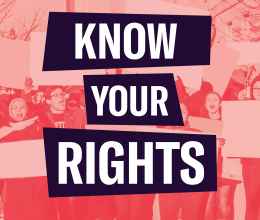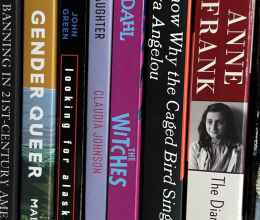Protests and demonstrations often are aimed at an audience that would strongly prefer not to hear the message. For example, the First Amendment protects the right of labor unions to picket on sidewalks in front of workplaces engaged in allegedly improper employment practices. Likewise, the First Amendment protects the right of people of all political beliefs to protest on sidewalks in front of their elected officials' offices. Thus, the American Civil Liberties Union of Illinois often advocates to insure that groups have the right to express their messages to the audiences they want to hear those messages.
Unfortunately, Chicago has an ordinance that bans protests within 150 feet and 30 minutes of a religious service in a house or worship, with the exception of labor protests. But various groups seek to engage in protests that target parishioners coming in and out of such services, including alleged victims of sexual misconduct by priests who protest in front of Catholic churches. Last year, the Chicago police enforced this ordinance against protesters in front of the Scientology church. Another group that seeks to protest in front of a house of worship during a religious service is the Gay Liberation Network (GLN), an activist organization in Chicago that advocates on behalf of LGBT rights. GLN is planning a demonstration outside of Chicago's Holy Name Cathedral on February 13th, to advance equal marriage rights for all persons in Illinois. The demonstration is planned for the public sidewalk and is not intended to disrupt religious services inside the Cathedral, but simply to advance the GLN's message to parishioners attending services on that date.
On January 21st, the ACLU of Illinois wrote to the Chicago Police Department on behalf of the GLN. The ACLU explained that the GLN will not obstruct the flow of pedestrian traffic on this sidewalk, or block parishioners from entering or leaving the Cathedral. The ACLU's letter makes clear that this broad ban violates the First Amendment. The ACLU pointed out that the ordinance contains an exemption for labor picketing, creating speaker-based and content-based discrimination. We also noted that while the City can regulate disruptive activity that interferes with the conduct of a religious service, the government cannot ban all expressive activity within 150 feet of all places of worship. We asked the CPD to let us know if they were going to enforce the ordinance at the GLN's demonstration.
On January 25th, Chicago Corporation Counsel Mara Georges responded, saying that the City "does not intend to enforce" this ordinance at this time. This means that a peaceful demonstration will be able to go forward.
Call 1-855-435-7693
ICIRR hotline to report ICE activity in your community




